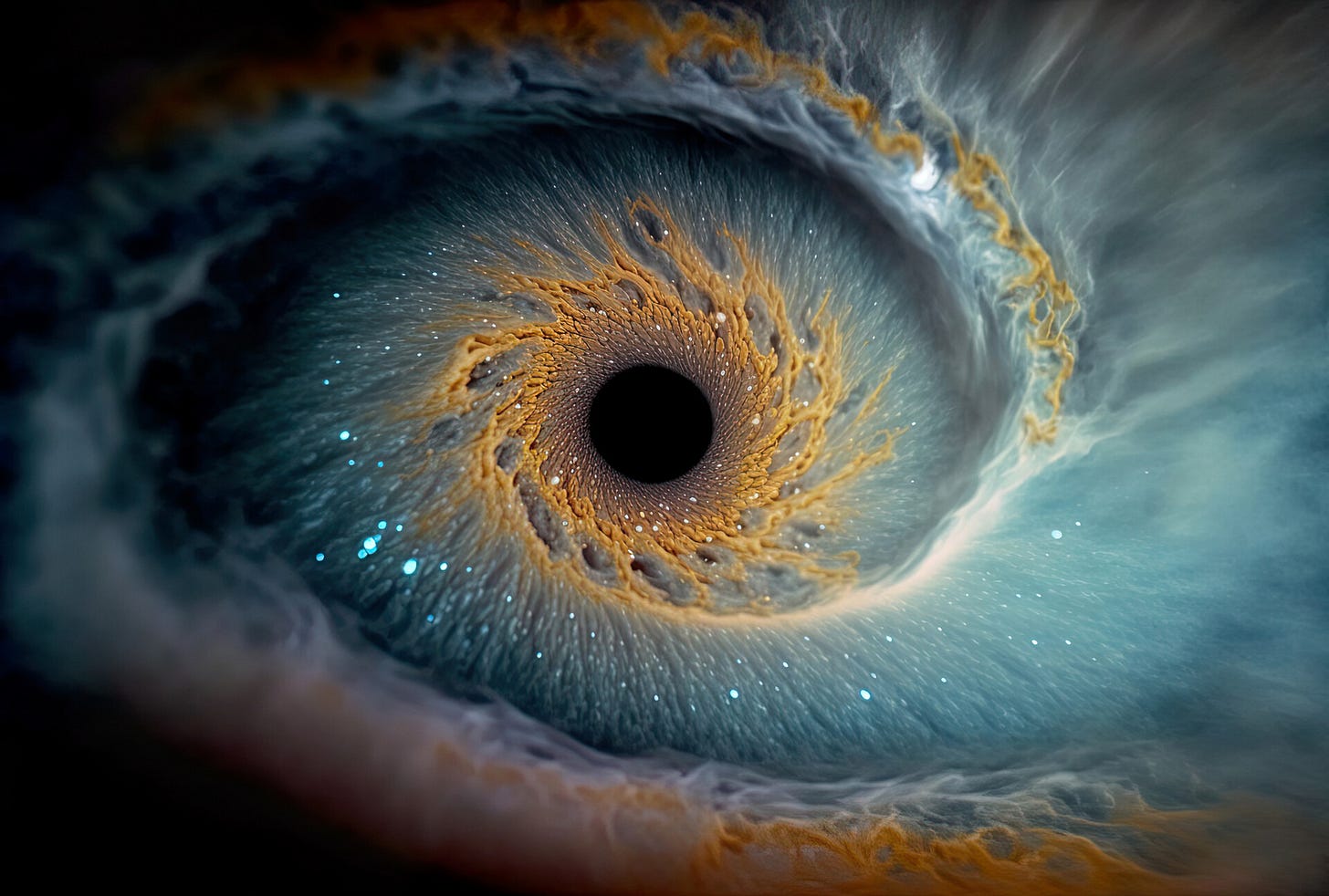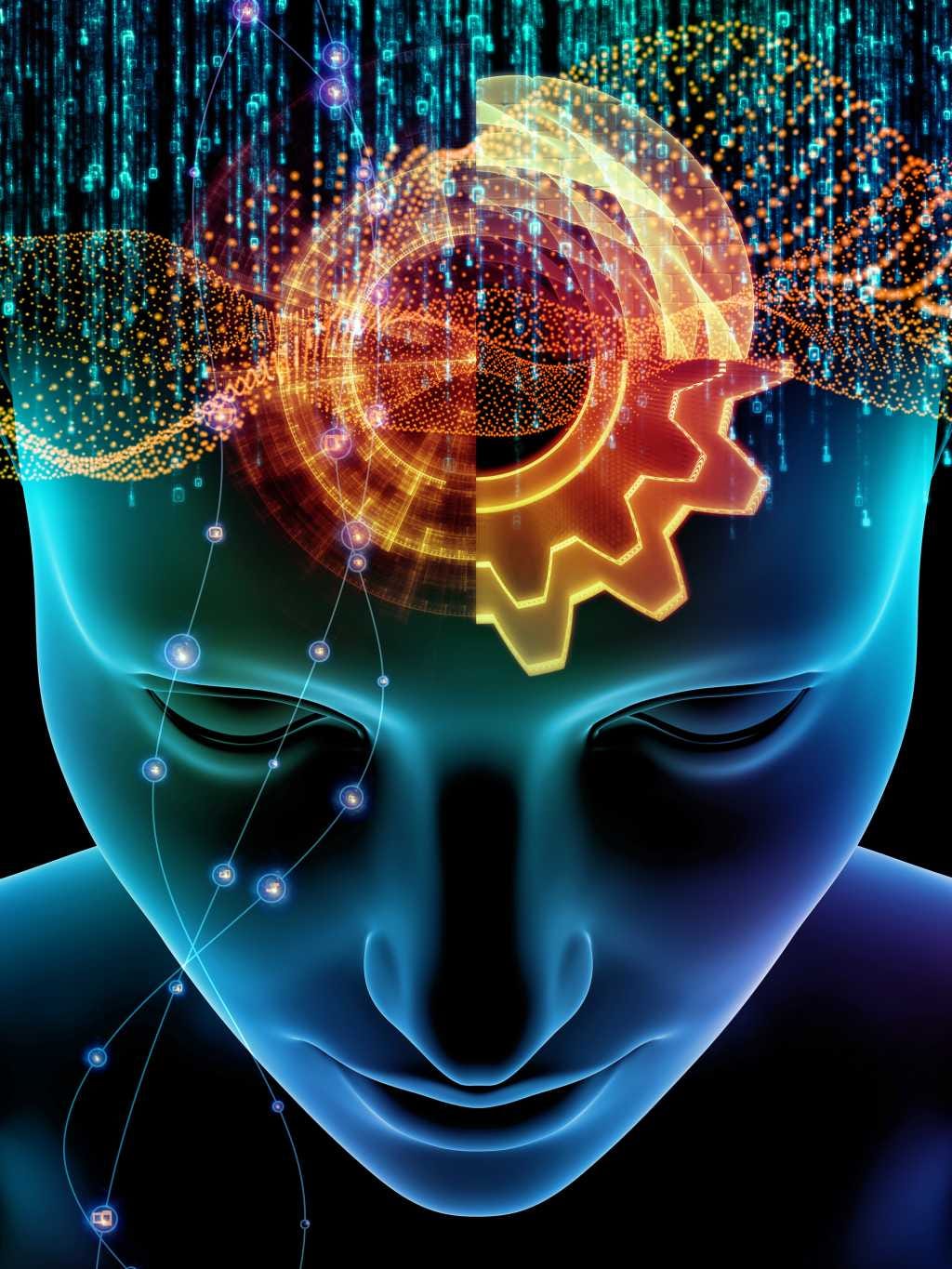At the moment, consciousness is still one the great mysteries of modern science. There are some tantalising hints about what’s behind the mind’s screen, such as:
The main purpose of the brain is to generate a stream of consciousness (Erik Hoel);
The theory of a predictive brain is as important as evolution (Lars Muckli);
Consciousness filters our perceptions in order to hallucinate reality for us (Anil Seth et. al.);
Our perceptions of space-time and objects have been shaped by natural selection to hide the truth and guide adaptive behaviours (Donald Hoffman et. al.);
As such, consciousness requires so many resources from the human brain that Peter Watts speculated what might happen if we run into aliens that are intelligent but do not have consciousness (Blindsight and Echopraxia). In theory, because such aliens have more resources available in their brains, they would be more intelligent than us, and therefore outcompete us. This is extremely interesting and the concept of non-conscious, highly intelligent aliens will hinge—I suspect—on the type of intelligence such aliens will have. I will get back to this in a different essay.
For this essay, however, I’d like to focus on how consciousness might be improved. I suspect that consciousness is so embedded in our human psyche that eliminating it would destroy our very humanity(1). So instead of getting rid of it, let’s think about what we could do to make it better.
(1) Make no mistake, the novo-humans arising from this might be better than us;
First, let’s be aware of the advantages of consciousness. If neuroscientists like Donald Hoffman and Anil Seth are correct, hallucinating the near-future—predicting what is most likely to happen immediately—gives us an important survival trait. Or, as Donald Hoffman et. al. have it:
“Our perceptions of space-time and objects have been shaped by natural selection to hide the truth and guide adaptive behaviours. Perception is an adaptive interface.”
Make no mistake, Anil Seth et. al. have demonstrated through their research that this actually happens, and Donald Hoffman et. al. have demonstrated through their research that this so-called ‘non-veridical perceptions’ are a superior strategy over ‘veridical perceptions’. In this way, consciousness delivers a compelling survival trait.
Also, I strongly suspect that consciousness is essential in developing communication. Right now, I fail to see how a non-conscious entity can discern between its own species and others, and—even more important—between itself and other individuals of its own species. Such a solipsistic species would have no different sexes—how would it recognise them?—and I think evolution has convincingly demonstrated that asexual reproduction is less viable in the long term that the sexual variant.
As such, the utmost majority of fauna know how to distinguish between their own and other species, and between the different sexes. It’s why I think most fauna has—at least—sentience and therefore has developed ways of communication.
Then communication took on a flight when speech and language were developed. This is important because language is an evolutionary accelerator. How? Because it mostly skips genetics; that is, now parents can teach their offspring what is right and wrong behaviour in one generation, while the survival-of-the-fittest selection hinges on species arising that have those traits through genetic selection, which can take many generations.
In that way, consciousness—basically an advanced form of sentience—also delivers an important survival trait. As such, it enables the way to change evolution from a mainly Darwinian to a more Lamarckian variety, especially when agriculture, and subsequently the first human civilisations arise. Roughly speaking, first it was proto-humans adapting to their environment, now it is humans changing the environment to suit our needs.
And this is where much of our evolutionary ingrained behaviour is becoming obsolete. For example, in a fight for limited resources on the Savannah, it makes sense to be able to quickly judge if someone can be a friend or a foe. Psychological research has shown that we still rely on first impression; that is, we determine for more than 90% how we like a person in the first 10 seconds we meet them. This might have been a survival trait back in the days our ancestors roamed the African plains, but is most certainly not the best way to hire a person for a highly specialised job (which will be the majority of the jobs as automatisation increasingly takes on the generic tasks).
Similarly, do we really need ‘non-veridical perception’—hallucinate the immediate future—in today’s advanced civilisation? On top of that, the majority of the survival traits we inherited from our ancestors are aimed at short-term survival. Check out the long list of cognitive biases on Wikipedia: are the majority of them still applicable?
So many of our coping mechanism come from a time before the advanced society we live in today. And while we do try to modify those—through our judicial system, through therapy, through politics, and through several other ways—this takes time because they are evolutionary ingrained.
Now suppose we get such an understanding of the functioning of our brains and consciousness—these two will go hand in hand—that we could tweak these behaviours? That we could change our behaviour for the better? Should we do it, and if yes, then how could we do it?
—Should we do it?—
This, of course, touches on the concept of free will and personal freedom. Nobody likes to be told what to do. Yet that is not an excuse to persist with bad behaviour. Because free will and personal freedom can go too far. Should a group of billionaires have the freedom to destroy the planet for their own greed? Should sexual predators be protected by the clergy? Should sociopaths, remorseless murderers and [others] be left to roam freely?
In the end, it comes down to the quandary depicted in A Clockwork Orange. Should Alex—the violent protagonist—be subjected to the ‘Ludovico Technique’ (an experimental psychological conditioning technique that’s rather cruel in itself, and which doesn’t hold up, in the end), or not?
Make no mistake, in a way we are already doing just that. Criminals sent to prison often also go through a rehabilitation program. This is not different from different from a way to change their behaviour so that they can function in today’s society. Is this any different from the harsh methods portrayed in A Clockwork Orange? The only difference is the harshness, not the method nor the intention of the intervention. So if we could do it through a simple tweak in the brain, why not?
A smaller matter. I—like many others—have a craving for rich and/or sweet food. I suspect that this was a survival trait back in prehistorical days because such rich food was scarce. So once you found it, you devoured it. Now such food is ubiquitous and we keep eating it, even if we intellectually know it’s wrong. So would I welcome a tweak in my brains that would change my craving for such foods into a craving for more healthy food? You bet I would.
Let’s take this a step further. So many of our survival traits and cognitive biases are aimed at short-term advantages. Also baggage from the Savannah, as in those times humans had no grip on the medium- or long-term future. But now we do. We can plan for long-term projects that—with a high degree of likeliness—will be benevolent for both the planet and mankind. But we don’t so it because we still prefer short-term benefits. Therefore, would it be wrong to imbue our mindset—once we have that option—so that we would incorporate long-term planning by default? To try to become better human beings?
I think we should at least try.
—How should we do it?—
Here are a few things that immediately come to mind:
Implement long-term thinking;
If we don’t, we risk making Earth uninhabitable for humans and many other species. See: climate change, pollution, environmental degradation and more;
Implement an ethical mind set;
This goes hand in hand with the long-term thinking—they both lead to a better world. However, an ethical mind set may also prevent short-term suffering;
Enhance pattern recognition abilities with a sensitivity for black swan events;
There is a famous “Selective Attention Test” where people are asked to watch a video where a basketball is passed between two groups of people, and keep track of how much times the ball is passed around between one team. Sometime during that video, a person wearing a gorilla suit walks through the group. Most people don’t notice the person in the gorilla suit because they’re so concentrated on the ball passing task. This demonstrates that our minds are not prepared to recognise events that are out of the ordinary, let alone so-called black swan events.
Black swan events are events, discoveries or accomplishments that are undirected and unpredicted, yet initiate huge changes. Nassim Nicholas Taled—who developed the black swan theory—mentions the internet, the personal computer, World War I, the dissolution of the Soviet Union and the September 11, 2001 attacks as examples.
However, black swan events also happen when we rely too much on new technologies, when we introduce them before testing them sufficiently (because money must be made). Examples: [a number] and current AI’s production of nonsense (euphemistically called ‘hallucinations’).
Obviously, if we develop a sensitivity for them, we might dampen—or even prevent—their negative effects;
Enhance creativity;
“Is that even possible?” Some of you may ask. Since this is a quality unique to the brain, I think it is. Theoretically, once we find out how our brains function, we should also know which parts of the brain provide creative thinking, and subsequently develop methods to increase them. Possibly, tweaking quality A may come at the cost of tweaking quality B. Well, if it doesn’t we can tweak creativity at will. If it does, we must consider the consequences. Suppose—as the cliché goes(2)—that highly creative people are also more impulsive and less sensitive to dangers, then we need to protect them (either by other people, AI-embedded robots, or both) if the positives outweigh the negatives;
(2) Kurt Gödel’s behaviour refutes this cliché, as he had a lifelong fear of being poisoned;
Enhance intelligence in general;
For this, we need to find out what intelligence truly is, and if it can be separated from consciousness;
Note: I’m not pretending this list is complete. These are the first things that come to mind. And if I knew which behaviour would be beneficial in the extremely advanced civilisations of the future, I would be the next Nostradamus instead of a mere science fiction writer…;-)
Can we do all that without modifying the hardware of the brain? No. It is known that the brain changes neural pathways when determining which memories to save and even which behaviour to favour. Roughly speaking, the software and hardware change together, to a higher or lesser degree. So we’re already doing it, and implementing one of more of the modifications mentioned above will change the composition of the brain. It is how it is.
But can the brain handle all those changes? Impossible to tell without trying them. Most obviously, there might be a capacity problem. However, throwing more neurons at it may not always be the best answer. For example, Neanderthal people had larger brain pans than the Cro-Magnon ones (so supposedly larger and heavier brains), yet the Cro-Magnon variety eventually became the dominant variety, quite possibly because their brains were more effective(3).
(3) This is speculation, of course. But the fact that Neanderthal humans had larger brain pans is indisputable;
But I do think there is plenty of room for improvement, and that the improved humans may find further avenues of improvement(4). Or until we can upload ourselves into a different substrate—a substrate more suitable for interplanetary and interstellar travel.
(4) Until they become the next stage of humans, which is how it should be, as we still have the strong tendency to consider ourselves the pinnacle of creation/evolution/civilisation(5). We are not;
(5) Delete as appropriate;
In fact, we are already trying to do the things I mentioned above, but in much more indirect and roundabout ways. And I strongly suspect that one of the things that are preventing true progress is our stubborn resistance to change ourselves for the better.
Author’s note: no way, another essay? Yes, I do intend to bring those back in a more regular schedule. Plus a catch-up with the novel serialisations. Plus other stuff. Why are there only 24 hours in a day?
Welcome to the new followers and subscribers, and many thanks for reading!








